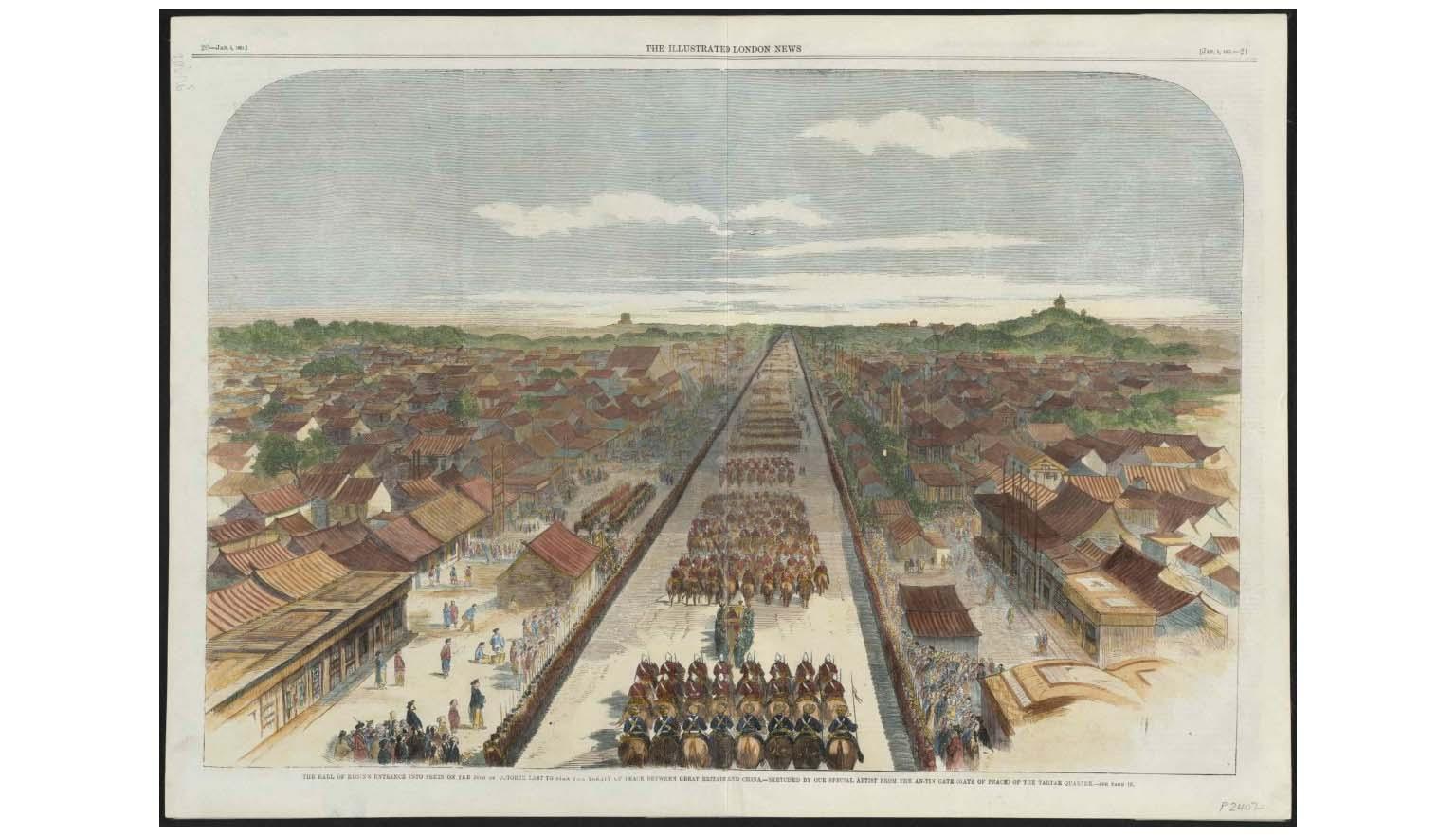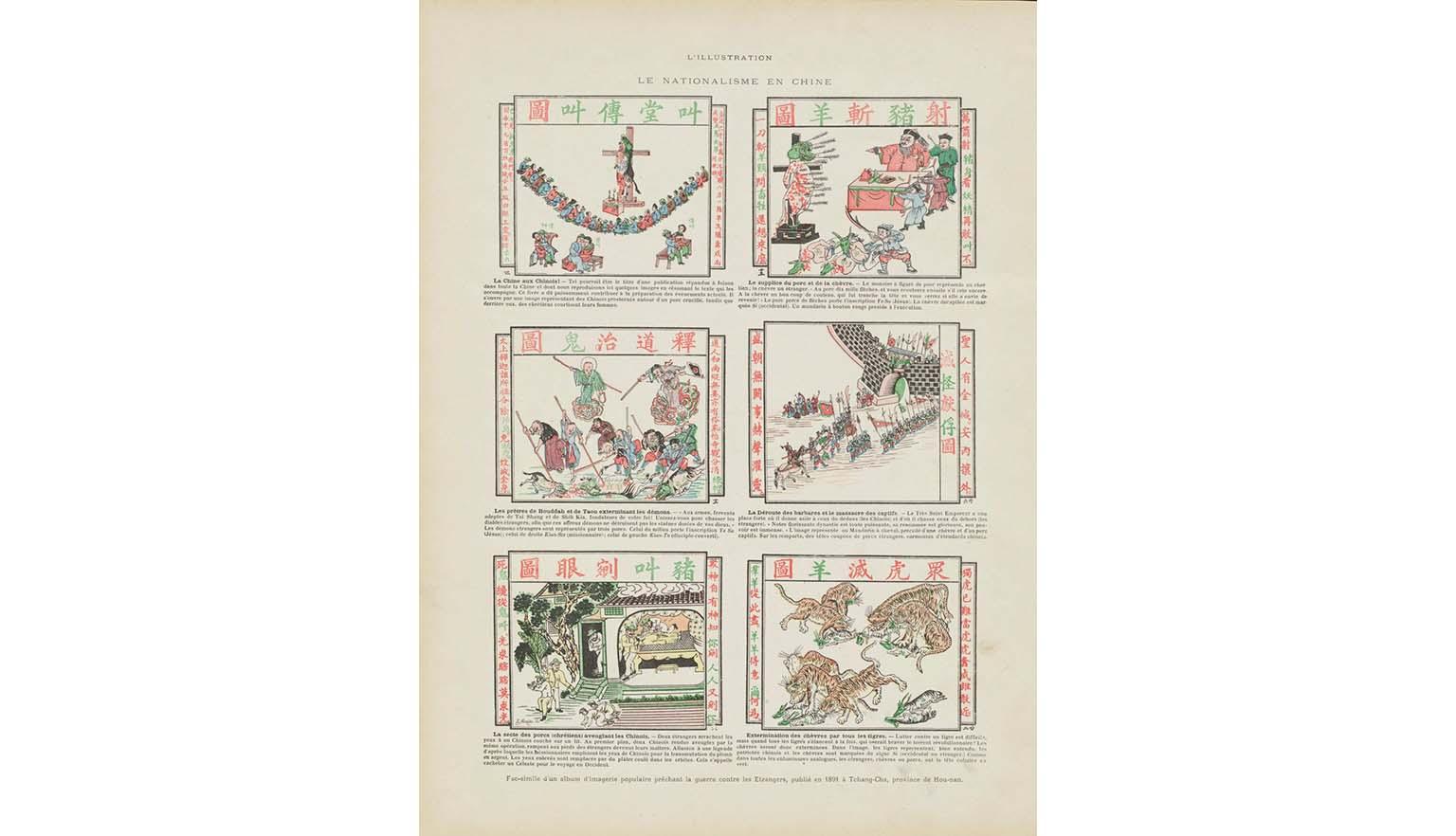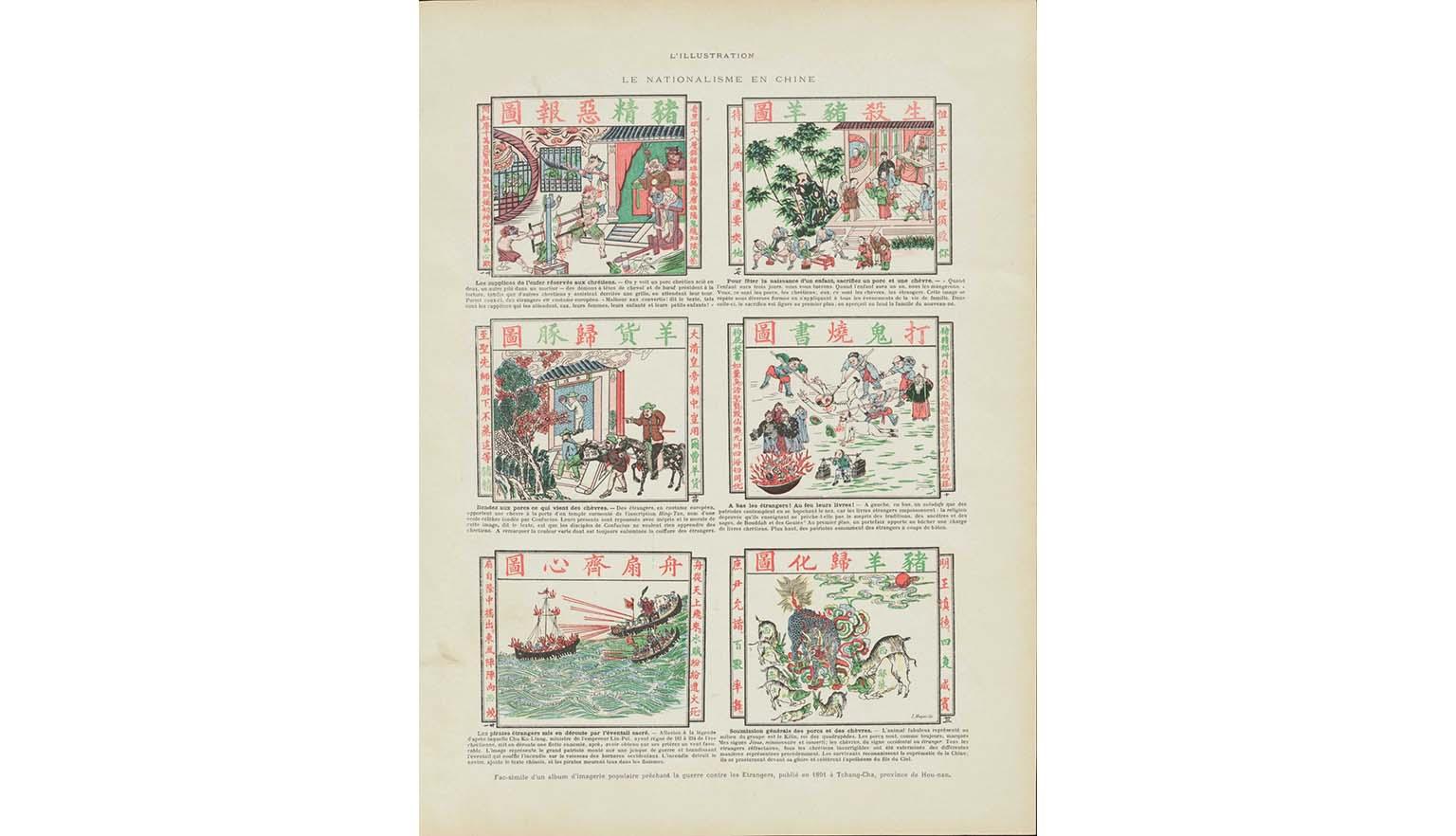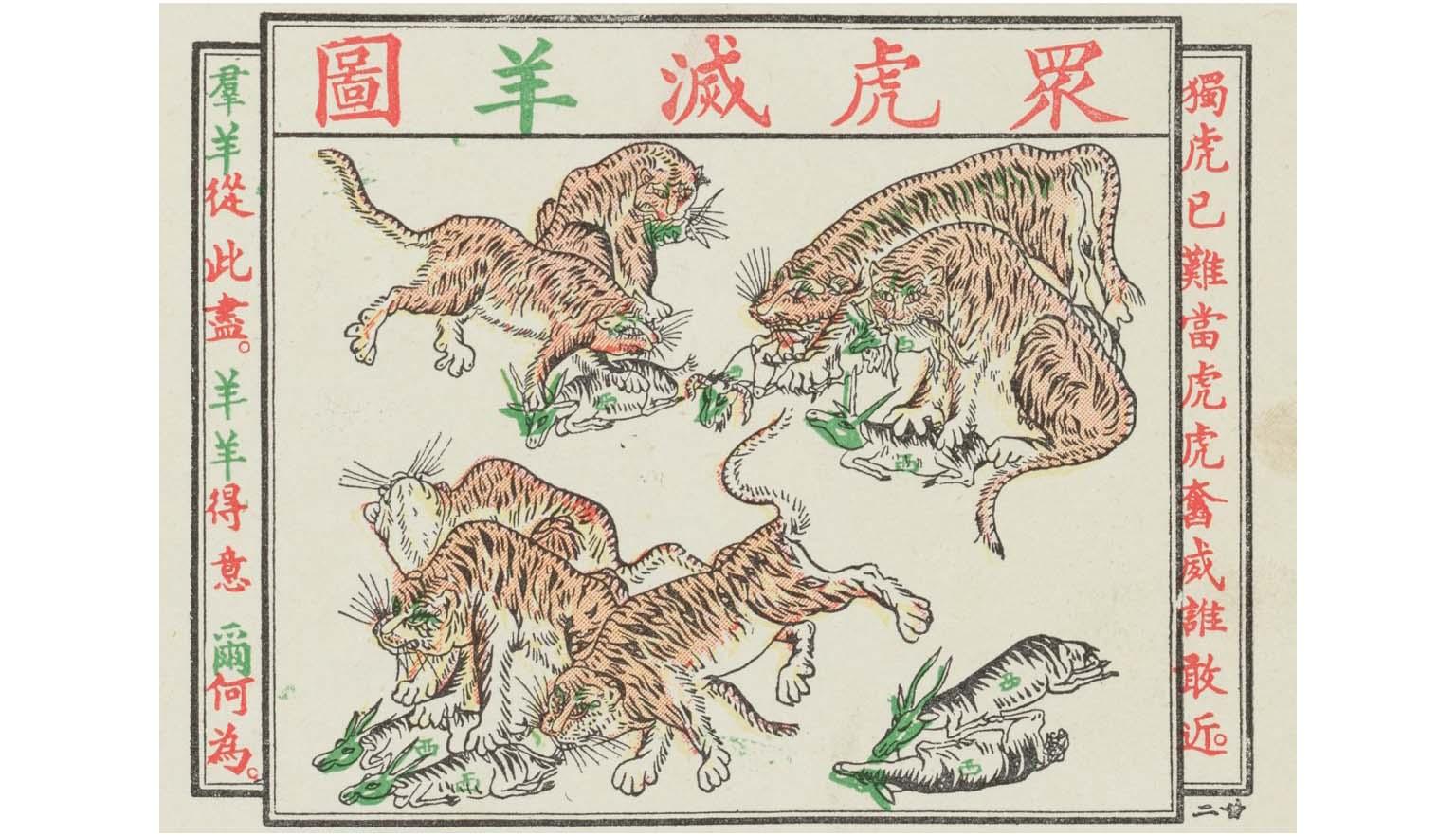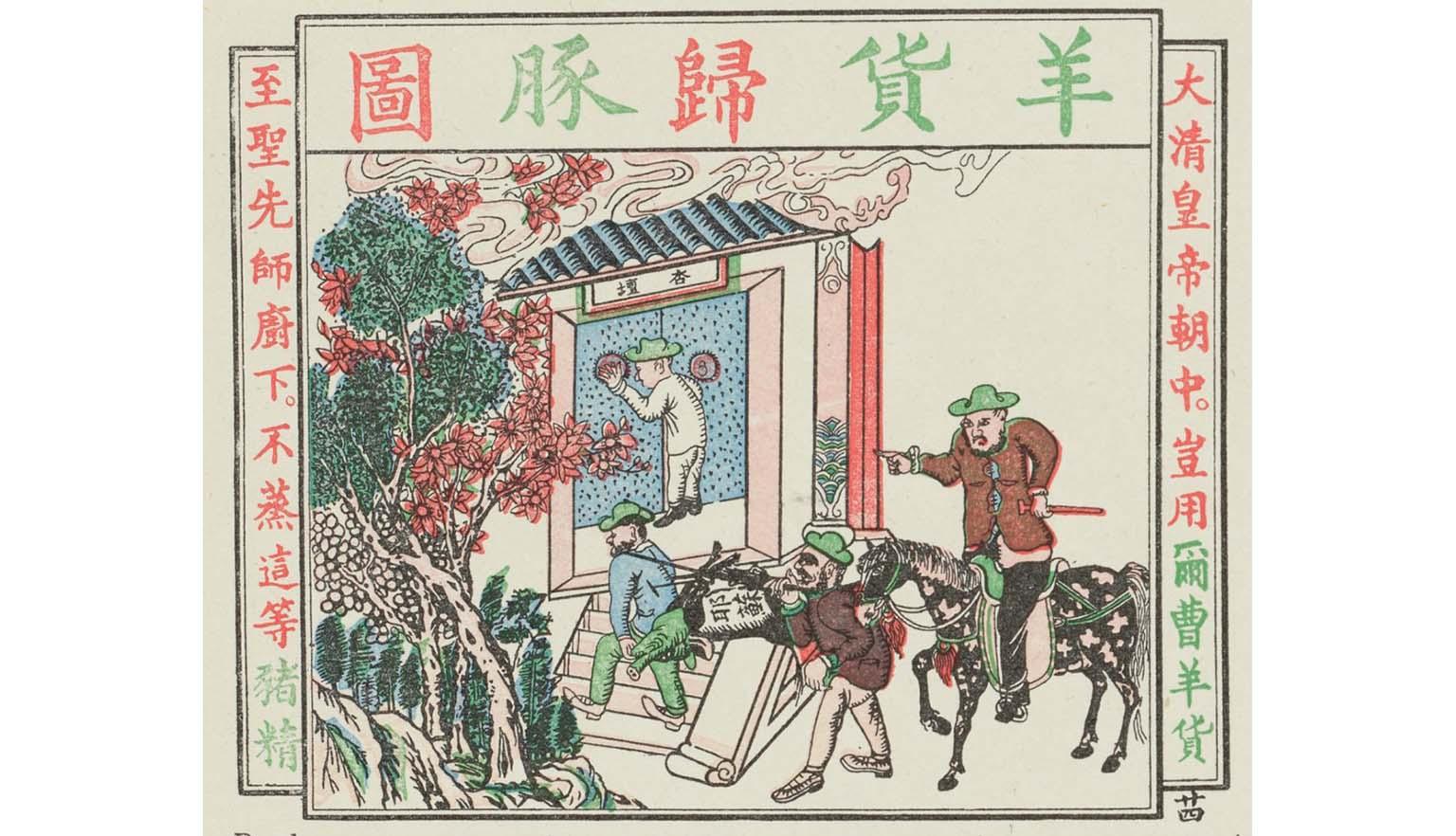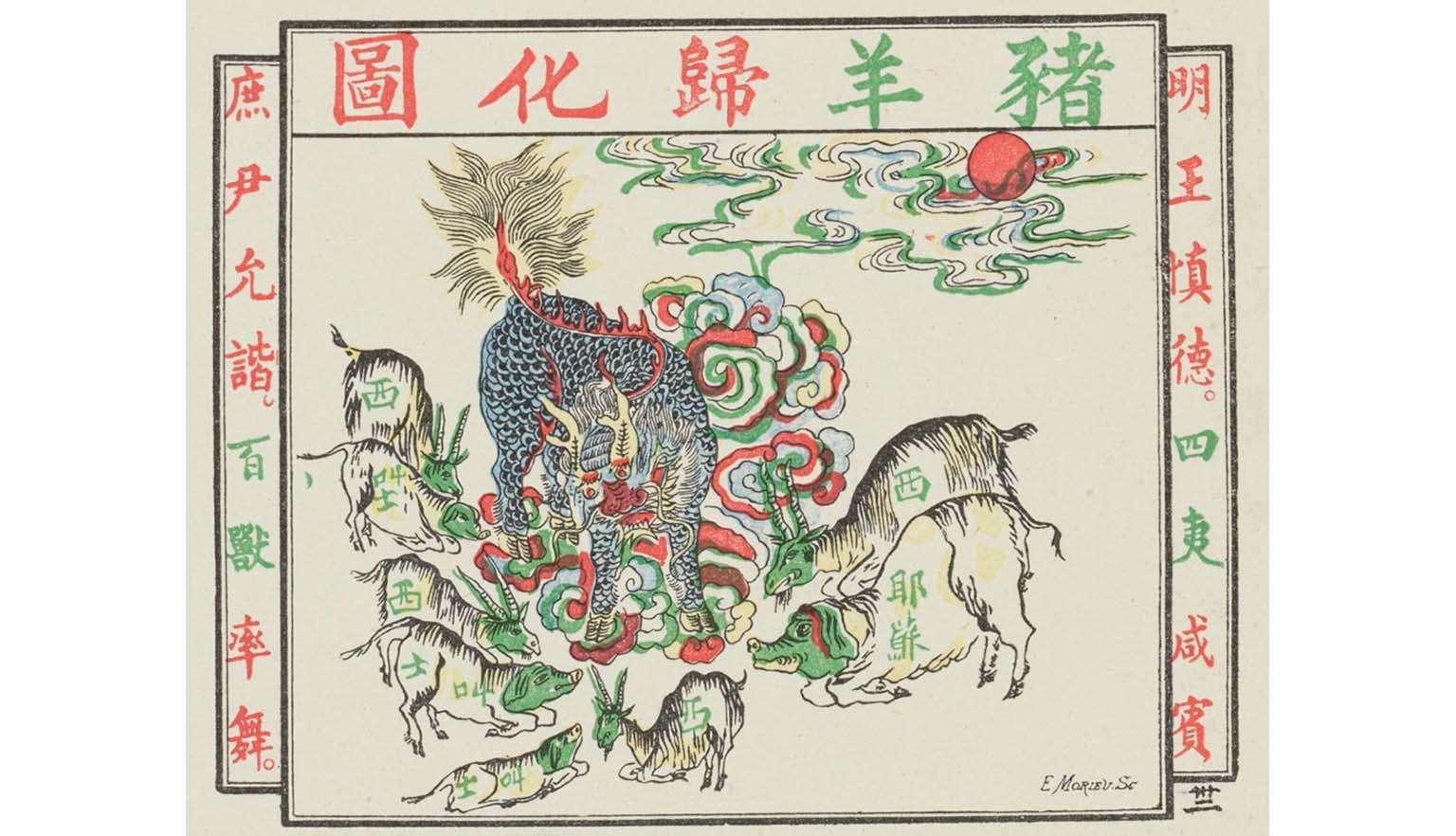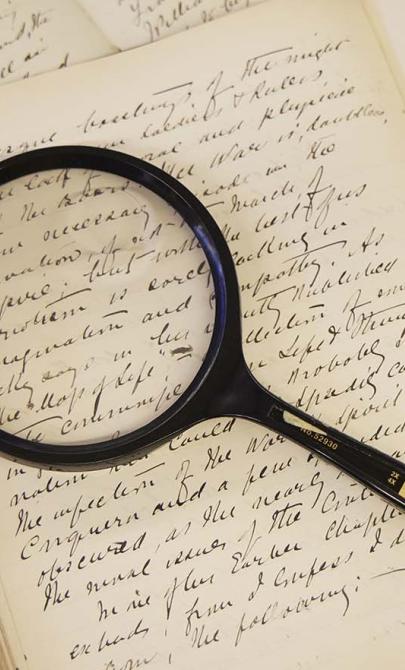Contact and conflict
From around 1550, European trade was confined to the southern port of Canton (now Guangzhou). Foreigners were not allowed to live there, but despite these restrictions, China remained a place of endless fascination and potential profit for Western merchants and leaders.
As European interest in China grew, Western powers attempted to gain greater access through diplomacy, religion and, increasingly, more aggressive methods. These efforts—and their consequences—had lasting impacts on Qing society.
The Opium Wars
By the early 1800s, British merchants had discovered a product they could market in China: opium. Huge volumes were shipped from British-controlled India, and by the 1830s, a tenth of Britain’s revenue in India came from the opium trade. This had devastating social and financial effects in China.
In 1839, the Qing court sent Commissioner Lin Zexu (1785–1850) to Canton to end the trade. After Western merchants ignored his pleas, Lin seized their opium—sparking the First Opium War.
Britain defeated China and forced the Qing to sign the Treaty of Nanjing in 1842. This unequal treaty required China to open five ports to foreign trade, pay a large indemnity, and cede Hong Kong to Britain. At the time, British Foreign Secretary Lord Palmerston famously dismissed Hong Kong as “a barren island with hardly a house upon it”.
A Second Opium War, also known as the Arrow War, broke out in 1856 over similar trade and diplomatic issues. The war ended with the Treaty of Tianjin (1858), which expanded foreign access:
- More ports were opened
- Foreign diplomats were allowed in Beijing
- Missionaries could operate freely
- The opium trade was legalised
When the Qing court resisted ratifying the treaty and foreign diplomats were killed, Britain and France marched on Beijing in 1860. They issued an ultimatum for surrender and, when demands weren’t met, looted and burned the Qing imperial gardens. The court eventually capitulated. On 24 October, British forces led by Lord Elgin marched through Beijing. French troops followed the next day.
Treaty ports and foreign presence
After the Second Opium War, the treaty port system expanded. Cities such as Hankou (now part of Wuhan) were opened to foreign trade. Located nearly 1,000 kilometres inland along the Yangzi River, Hankou became a major port in 1861. Foreign settlements sprang up in these cities, bringing unprecedented contact between Chinese communities and Western traders, missionaries and diplomats.
A woodblock-printed map of Wuhan from 1875 shows Hankou and its foreign concessions along the river, with Chinese and foreign ships sharing the busy waters. Across the river from Hankou sits the walled city of Wuchang, home to the iconic Yellow Crane Tower.
By 1911, there were more than 50 treaty ports across China. These ports gave foreign powers significant influence over Chinese trade and territory—often through extraterritorial rights that exempted foreigners from Chinese law.
The Taiping Rebellion (1850–1864)
While foreign pressure mounted, China also faced major internal challenges. The most significant was the Taiping Rebellion, one of the deadliest conflicts in human history. Over 20 million people died and 600 cities were destroyed.
The rebellion was led by Hong Xiuquan, a man who claimed to be the younger brother of Jesus Christ. He founded the Heavenly Kingdom of Great Peace and captured Nanjing in 1853, transforming it into his capital. Taiping leaders used printed proclamations and banners to spread their message and reassure the public of their intentions.
The Qing dynasty eventually crushed the rebellion with the help of the Ever Victorious Army, a Qing-aligned force trained and led by European officers. The conflict had profound social, military and political effects on Qing China.
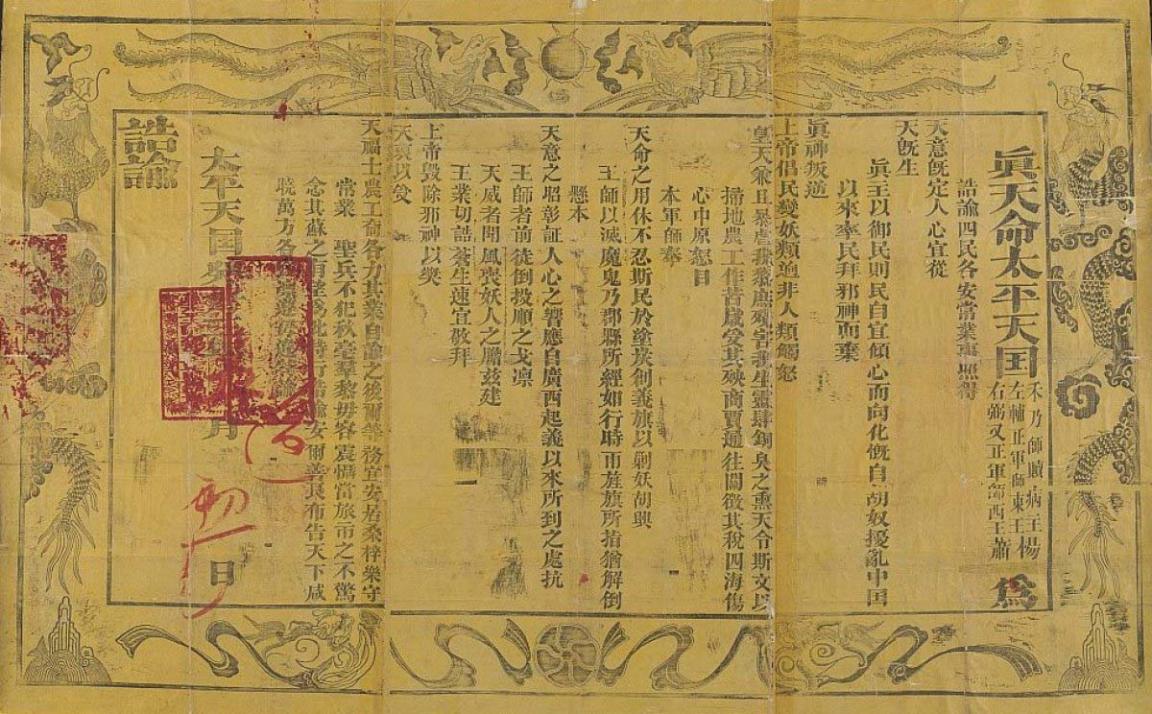
Xiuqing Yang & Chaogui Xiao, Zhen tian ming Tai ping tian guo ... wei gao yu si min ge an chang ye shi / [Yang Xiuqing, Xiao Chaogui bu gao], 1853, nla.gov.au/nla.obj-61347334
Xiuqing Yang & Chaogui Xiao, Zhen tian ming Tai ping tian guo ... wei gao yu si min ge an chang ye shi / [Yang Xiuqing, Xiao Chaogui bu gao], 1853, nla.gov.au/nla.obj-61347334
Yang, Henai Master, Disease-Dispelling Lord, Bulwark of the Left, Chief Commander and East King, and Xiao, Support of the Right, Chief Commander and West King of The Heavenly Kingdom of Great Peace under the True Mandate of Heaven hereby proclaim:
We enjoin all subjects to maintain their usual occupations. The minds of people should comply with the will of Heaven once it is established. The people should submit themselves in devotion once Heaven has given birth to the True Lord to reign over the people.
Since the barbarian minions threw China into turmoil, they have led the people to worship false gods and abandon the true God. They betrayed the Lord on High and incited the people to revolt. These demons are not at all human. They anger August Heaven and tyrannise and murder our people. They let the stench of cash permeate Heaven and leave our culture to languish in the dust. Farmers and craftsmen in their toiling suffer depredations year after year. Merchants in their trading are taxed at every pass. Everyone in the empire despairs; the entire central plain seethes with anger.
Our army upholds the mandate of heaven and cannot tolerate the torment of the people. We hoist the banner of righteousness in order to vanquish the demonic barbarians. We marshal our sovereign forces in order to exorcise these evil ghosts. We are like the arrival of timely rain for the commanderies and counties we pass. We are like relief in desperate times wherever our banners fly. We originate in manifestations of the will of Heaven. We are vindicated by the welcome of the people.
Everywhere we have been since the uprising in Guangxi, the vanguard of those opposing our sovereign forces has come over to join our ranks; all those fearing the might of Heaven have lost their demonic courage at news of us. We now establish our sovereign reign and command the multitudes to reverently worship the Lord on High and destroy false gods in order to encourage faith in Heaven and receive Heaven’s blessings. Officials, farmers, artisans and merchants shall all work at their occupations. From this proclamation onwards, you must live peacefully in your homes and engage happily in your usual occupations. Our holy troops will not cause the slightest harm. You should not be alarmed. When no traveller or trader takes fright, there will be hope of renewal. For this reason we make this proclamation to comfort you all. We announce this throughout the empire for all to know. Everyone should strictly obey without fail. This is a special order.
First day of the fifth month in the third year, guihao [6 June 1853], of the Heavenly Kingdom of Great Peace.
The Boxer Rebellion (1898–1901)
The Boxer Rebellion was a grassroots, anti-foreign movement that began in Shandong province. The Boxers—known in English as the “Fists of Righteous Harmony”—sought to preserve the Qing dynasty while expelling foreign influence, especially Christian missionaries.
Supported by many at court, including Empress Dowager Cixi, the Boxers laid siege to foreign legations in Beijing. A multinational force of 20,000 troops eventually broke the siege after two months. The city was looted, and the Qing court fled. China was forced to pay a massive indemnity, and thousands of Chinese Christians were killed during the violence.
Learning activities
Activity 1: Treaty Port investigation
Assign each pair of students a treaty port. Using primary sources from the Celestial Empire Trove lists, students investigate the following questions:
- Where was the port located?
- Which treaty opened the port? Was it linked to the First or Second Opium War?
- Which nations had a presence there?
- Why was the port strategically or commercially important? What was traded?
- Are there lasting influences today (for example, cultural or architectural)?
Refer to Trove:
Activity 2: Map analysis
Display the 1875 map of Wuhan to the class. Discuss:
- What evidence of foreign presence is visible?
- Which nations appear to be operating in Hankou?
- Locate Wuhan on a modern map of China.
- Explore the ideas of concessions and extraterritoriality.
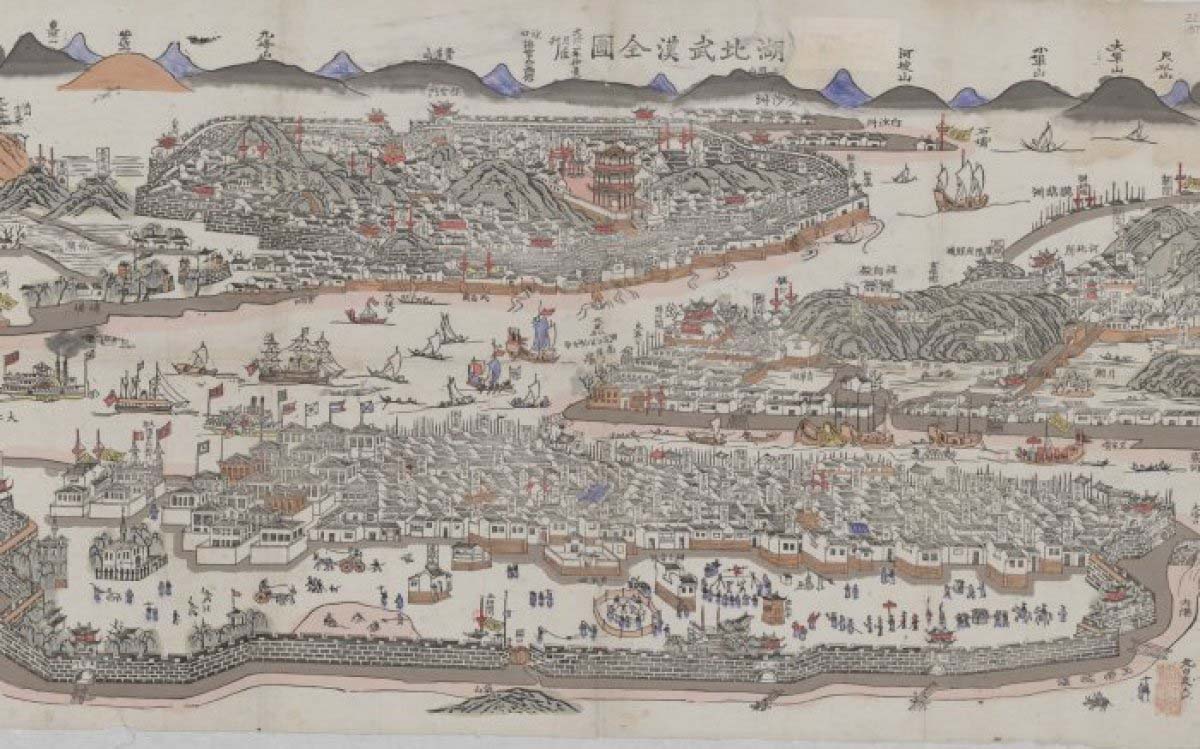
Map of Wuhan, Hankou: Gallery in the Studio of Ocean Clouds 1876, National Library of China
Activity 3: Opium Wars discussion
As a class, discuss the causes and consequences of the Opium Wars using images and primary source accounts.
Activity 4: The Taiping Rebellion
Ask students to investigate and analyse the Taiping Rebellion’s impact on Qing China:
- Social: How did it affect Chinese society?
- Military: How did the Qing respond to the threat?
- Political: What were the longer-term effects?
Refer to Trove Celestial Empire: Taiping Rebellion
Activity 5: The Boxer Rebellion
Explore the motivations behind the Boxer Rebellion and its consequences for China.
Refer to Trove Celestial Empire: Boxer Rebellion
